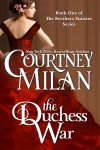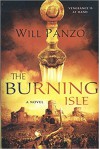

"Since we are all supposed to be equal, if one person starves, then all should starve."
That sentence would be my pick for the one-sentence summary of the whole book. The title is a bit of a misnomer in that it is not the father of the family who actually dies first, but the implications of the title hold true. The entire book is told from the perspective of the author's child self and is written and fleshed out with details accordingly. Similarly, the narrative is not always clear, the tenses shift, and a lot of chunks are what young Loung imagines her family members did or thought or what she believes happens when she superimposes her fantasy onto reality. It is definitely a raw read, the details are too specific and gritty to be fictional (I say that as having read some ASoIaF recently) and nothing is ever explained because nothing was ever explained to the children even as the events were happening. A lot of blanks can be filled in with the benefit of adult knowledge and a certain amount of the author's own hindsight which adds crucial hints.
I admit to not knowing much about the war or genocide. I remember it vaguely as a topic that was covered in high school, mostly because one of my friends was the youngest child of a Cambodian family that had left the country because of it. This book will certainly not expand any knowledge about the political situation. Rather, it will describe how strongly war can impact even children, regardless of their age.
As mentioned in the end notes of the book, Ms. Ung said that one of the reasons she wrote it was because people would comment on how fortunate it was that she was so young when it happened, therefore she must not remember it all, when in reality she remembered it vividly and it had a profound effect on her life. Throughout the story as it progresses, with young Loung about 5 years old at the beginning of the story, she goes from a spoiled, self-centered child to an angry, vengeful child determined to fight - or worse - to survive. It is not a pretty journey and not the kind that would be considered conventionally inspirational as many survivor accounts seem to be. I don't even feel any particular attraction to young Loung, despite knowing that she is enduring atrocious circumstances and this is the author's own memoirs; yet that is what I think makes this such a good book since the author did not censor her negative traits and actions when she could have portrayed herself more sympathetically. It was a horrible time when terrible things were happening and everyone did bad things.
All that being said though, I just could not wrap my head around the non-linear narrative, so I gave it a lower rating than probably anyone else would be willing to do. Oh well.

 3
3










